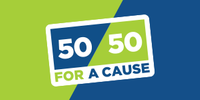A program offered at the Estevan Comprehensive School (ECS) that has helped students be more prepared to handle their money as an adult will soon become a part of the provincial curriculum.
Gordon Wyant, Deputy Premier and Saskatchewan Education Minister, announced earlier this week that the writing for new financial literacy courses will begin this April, with the pilot program starting next school year and full implementation ready as early as September 2019.
In Estevan, 'Personal Finance 30' is an elective class locally developed and taught by Josh Leblanc, the Business Education teacher at the ECS for the last six years to give students more knowledge of their current financial challenges and how to prepare for more situations as an adult.
"When you look at personal finance, it's a set of skills," expressed Leblanc on Thursday morning following the release. "It's budgeting skills, it's understanding money, it's how to handle the income that you have."
"Something as simple as living within your means, because most people don't understand how to live within your means and still have money for savings."
The elective course at ECS utilizes budgeting exercises using real-life numbers and examples that the students themselves are currently in.
"We do exercises around parents opening up bank accounts for their kids. And we go through the process and all of a sudden students realize that they are paying an extra $13-$15/month just for using their debit card. They don't realize that there are accounts out there offered by the banks for students specifically that offer reduced fees, reduced rates on usage, transaction fees, and so on," adds Leblanc.
"The kids realize they are spending extra money when they don't have to and through these exercises, things like this are being found and changed. And parents come back to us to say thanks and they wish they had a program like this when they were in school."
The Saskatchewan Chamber of Commerce has been a strong advocate for Youth Financial Literacy as part of the K-12 curriculum for a number of years and applauded the March 27th announcement in a release.
"Making sure that Saskatchewan’s youth are equipped with the skills and knowledge they need to make responsible financial decisions now and for the future is vital," said Steve McLellan, CEO of the Saskatchewan Chamber of Commerce. "Having a Financial Literacy component in the Saskatchewan school curriculum has been a policy priority for the Chamber for a long time and we are thrilled that this important step has been taken to prepare school graduates.”
That sentiment was echoed by Leblanc, who agrees that it's always beneficial to learn these skills at a younger age.
"I think that it's an amazing move and that it's going to help students in the future," expressed Leblanc. "We know that debt loads are continuing to become a concern, so being able to help students identify early how to handle their money, what they need to know, and how to allocate their money will be very beneficial for the future."
The new financial literacy curriculum is being developed for Grade 11 and 12 students. However, middle-school teachers (Grade 7-9) will also be able to introduce their students to financial literacy topics using the modules in the middle-level practical and applied arts courses.














